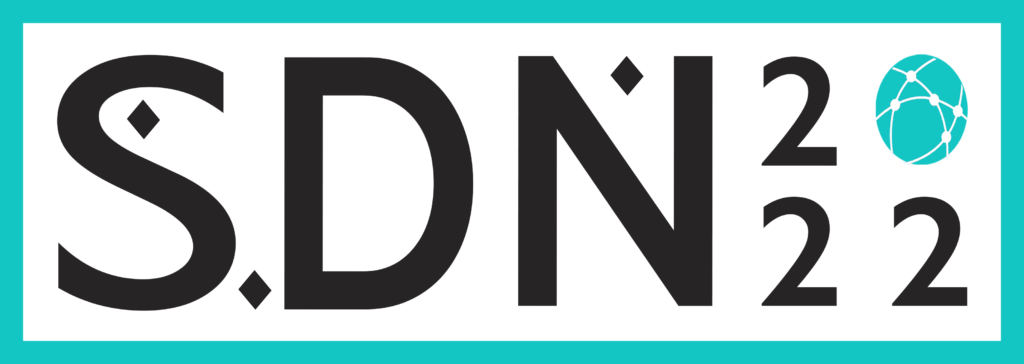
21st Science and Democracy Network
Annual Meeting
July 27-30, 2022
Harvard Kennedy School
79 JFK Street, Cambridge, MA, USA
The SDN Annual Meeting provides a forum for presenting research on salient issues in the contemporary politics of science and technology. The meetings train young scholars, foster international dialogue, and build improved understanding of ethical and policy challenges surrounding advances in science and technology.
What to expect:
Speakers are expected to submit papers before the meeting, and attendees are expected to read these in advance. There are no parallel ‘streams’ in SDN, so that everyone can hear all presentations and participate in discussion. This plenary format contributes to the unique value of SDN as a place for nurturing intellectual excellence as well as personal connections.
Plenary roundtables featuring junior and senior members of the Network create additional opportunities for addressing issues of shared professional interest. In keeping with its core training and mentoring mission, the SDN meetings provide ample opportunities are graduate students to meet with more senior scholars. These interactions have proved extremely important for enlarging career opportunities for young scholars in STS.
Who can attend:
Anyone is welcome to register. You do not need to be a member of the Science and Democracy Network to attend. We do assume that attendance means you are interested in becoming a member and participating in Network activities. Membership is currently free. Learn more about becoming a member.
Login to see the videos from the sessions below
Program
Thursday, July 28
8:30
Registration and Coffee (Wexner Building, Lobby)
9:00
Welcome and Introductions (Littauer Building, Room L-140 (Goodman Room))
Sheila Jasanoff (Harvard Kennedy School)
10:00
Session 1: Information States and Citizens (Chair: Ulrike Felt)
Laura Fichtner (Universität Hamburg)
Content Moderation and the Quest for Democratic Legitimacy
Vidya Subramanian (Harvard STS)
Citizenship in India: Parsing the complexity of digital identity systems in governance
Gabriela Bortz (CONICET/UNQ)
User Theory for Inclusion or Exclusion? User participation and inclusive citizenships
Yousif Hassan (York University)
Governing Algorithms: AI as a State Building Experiment in Africa
12:00
Working Lunch with Group Meetings (Wexner W-02)
Group 1: An SDN Take on Quantum Science and Technology (lead: Sam Weiss Evans) (Littauer L-330 “Herzog”)
Group 2: Pedagogy (lead: Margo Boenig-Lipstin) (Belfer B-124)
Group 3: Academic Publishing (lead: Kelly Bronson) (Belfer B-L-4 “Hauser”)
1:30
Session 2: Seeing Like a Globe (Chair: Clark Miller)
Jasper Montana (University of Oxford)
Suzie and the Dark Vessels: Co-producing satellite knowledge and environmental subjects in ocean governance
Pamela Carralero (Kettering University)
AI, Climate Modeling, and Global Climate Justice
Janna Huang (University of California, Berkeley)
Climate Knowledge Brokers, Investors, and Corporations: Measuring Progress Towards Global Net-Zero Targets
Christopher Lawrence (Georgetown University)
Gathering Around the Image: A new kind of media cycle in nuclear arms-control
3:30
Coffee
4:00
Session 3: Biopower and Territoriality (Chair: Pierre-Benoit Joly)
Olivia Foster Rhoades (Harvard)
Selection for Perfection: Biocensorship of Future Generations
Wairokpam Premi Devi (Central University of Rajasthan) & Ian McGonigle (Nanyang Technological University)
Imaginaries of Genomic Innovation: Precision Medicine and National Development Plans in Singapore
Santiago Molina (Northwestern University)
Social Control at the Edge of Science: How Positive Deviance in Human Genome Editing Contributes to Normalization
Sonja van Wichelen (University of Sydney)
Bioscience Governance and Global Inequality: The Material Transfer Agreement in the Global South
6:00
Refreshments (HKS Interior Courtyard)
7:30
Junior and Senior Council Dinners
Friday, July 29
8:30
Coffee (Belfer Building, Starr Forum, Second Floor)
9:00
Session 4: Morality and Public Reason (Chair: Ben Hurlbut)
Jacob Moses (Johns Hopkins University) & Karen Huang (Georgetown University)
“The Moveable Middle”: Misinformation and Moral Reasoning in Public Health Behavioral Modeling
Henriette Ruhrmann (University College London & Technical University Berlin)
Engaging Science: Leveraging Behavioural Science to Model and Facilitate Researcher-Legislator Engagement
Austin Clyde (University of Chicago)
Computing Right and Wrong: The boundaries of AI Ethics in American Undergraduate Computer Science Education
Hilton Simmet (Harvard STS)
Experiments in Justice: From Biomedical Morality to Economic Science
11:00
Roundtable: Environmental STS (Organizers: Silke Beck, Ulrike Felt, Tim Forsyth)
12:00
Lunch (Wexner W-02)
Mentor sessions
1:00
Session 5: Technologies of Movement Making (Chair: Stephen Hilgartner)
Stève Bernardin (UGE-LATTS)
Resistant imaginaries or public problems? The drive against autonomous vehicles in the United States
Margaret Davis (University of Southern California)
Supply Chains for the Long Crisis: Critical Dissociation and Alternative Materiality in Grassroots Mutual Aid Projects in California
Lisette van Beek (Utrecht University)
Experts and expertise in citizen engagement practices: A dramaturgical analysis of two climate policy cases
Pariroo Rattan (Harvard STS)
The Sounds of Resistance: Music in the 2020-21 farmers protests in India
3:00
Coffee
3:30
Session 6: Expert Practices and Public Policy (Chair: Silke Beck)
Nadine Osbild (TUM-STS)
No Space for Subculture: Effects of Innovation-Oriented Urban Development Strategies
Makato Takahashi (Harvard STS)
Improvising Expertise: Staging authority in Fukushima
Tadeusz Józef Rudek (Jagiellonian University)
Vaccines and Civic Epistemologies in the response of Polish Authorities to the Covid-19 Pandemic
Aditi Bawa (Drexel University)
Think Tanks and the Value-Free Ideal
5:30
Adjourn
6:30
Conference Dinner (Taubman Building, 5th floor, Nye)
Saturday, July 30
8:30
Coffee (Wexner Building, W-436)
9:30
Session 7: Trust in a Digital Age (Chair: Sheila Jasanoff)
Gabriel Dorthe (Harvard STS and IASS Potsdam)
Bodies of Suspicion: Distrust in Science – Online and Beyond
Ranjit Singh (Data & Society Research Institute)
The Curious Case of Tweeting an Aadhaar Number: Trust in the Security Practices of Public Data Infrastructures
Sharad Pandian (Nanyang Technological University)
Protean trust and the Singaporean authoritarian solution
Sam Weiss Evans (Harvard STS)
Collusion in Biosecurity Governance: whose trust is important to maintain?
11:30
Closing Discussion
12:30
SDN Farewells
1:00
Summer School Final Wrap-up Session (Wexner W-434)
3:00
Summer School Farewells
